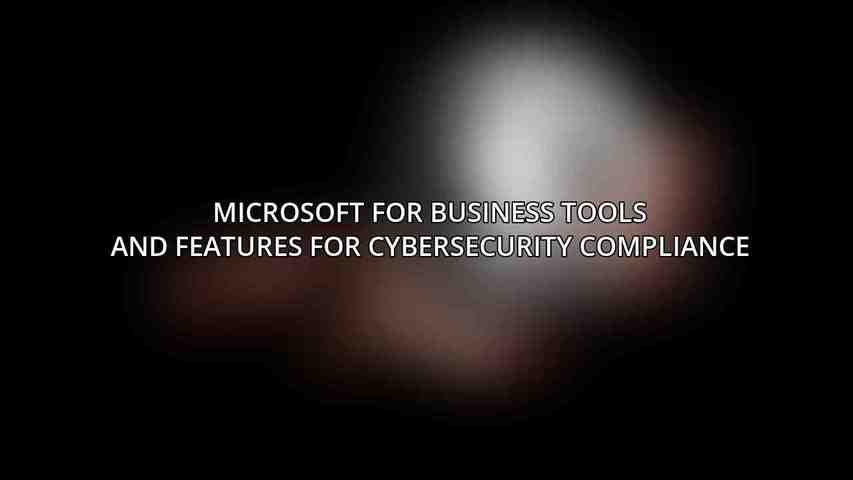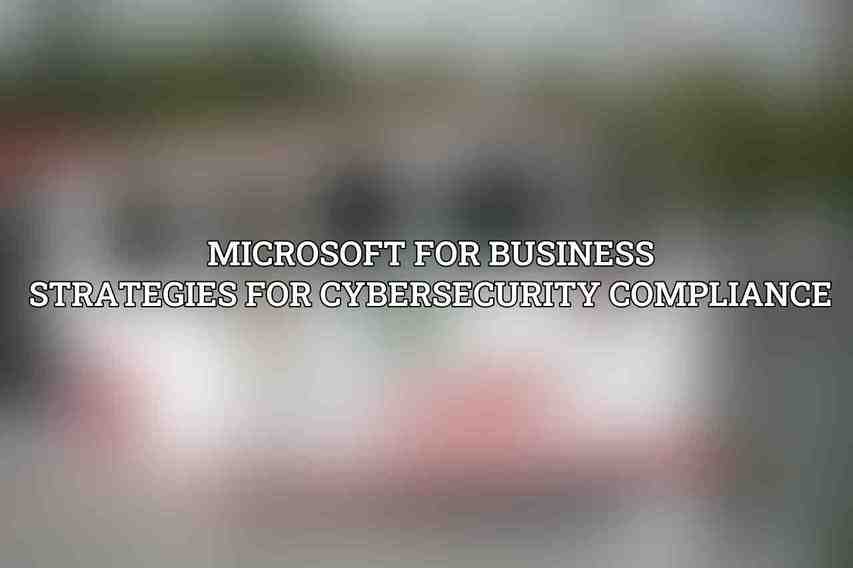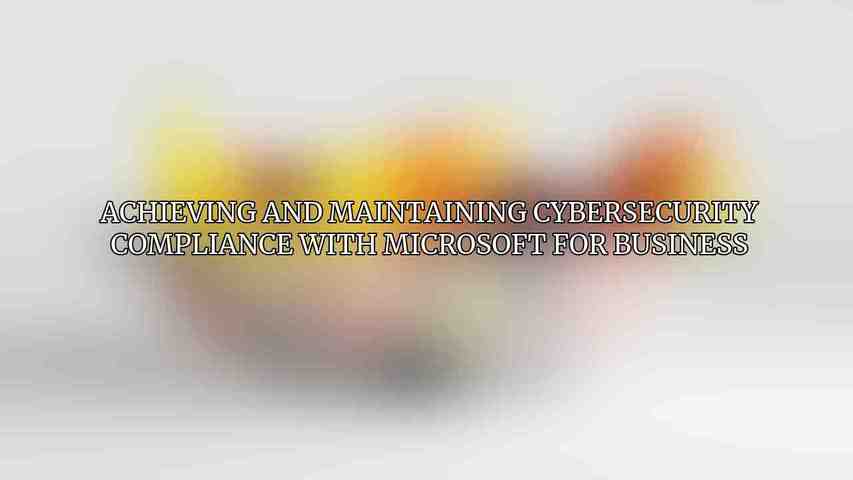cybersecurity compliance plays a critical role in safeguarding businesses against cyber threats and ensuring the protection of sensitive data. Compliance involves adhering to regulations, standards, and best practices to mitigate risks and maintain a secure environment for business operations. Microsoft for Business offers a comprehensive suite of tools and services designed to help organizations achieve and maintain cybersecurity compliance effectively.
| Feature | Description | Link | |||||||||||||||||||||||||||||||||||||||||||||||||||||||||||||||||||||||||||||||||||||||||||||||||
|---|---|---|---|---|---|---|---|---|---|---|---|---|---|---|---|---|---|---|---|---|---|---|---|---|---|---|---|---|---|---|---|---|---|---|---|---|---|---|---|---|---|---|---|---|---|---|---|---|---|---|---|---|---|---|---|---|---|---|---|---|---|---|---|---|---|---|---|---|---|---|---|---|---|---|---|---|---|---|---|---|---|---|---|---|---|---|---|---|---|---|---|---|---|---|---|---|---|---|---|
| Microsoft Defender | Comprehensive endpoint security solution that protects against malware, ransomware, and other threats | Microsoft Defender | |||||||||||||||||||||||||||||||||||||||||||||||||||||||||||||||||||||||||||||||||||||||||||||||||
| Multi-Factor Authentication (MFA) | Adds an extra layer of security by requiring users to provide two or more forms of authentication when signing in | Multi-Factor Authentication | |||||||||||||||||||||||||||||||||||||||||||||||||||||||||||||||||||||||||||||||||||||||||||||||||
| Microsoft Intune | Cloud-based mobile device management solution that helps organizations secure and manage devices | Microsoft Intune | |||||||||||||||||||||||||||||||||||||||||||||||||||||||||||||||||||||||||||||||||||||||||||||||||
| Azure Active Directory (AAD) | Cloud-based identity management service that helps organizations manage and secure user identities | Azure Active Directory | |||||||||||||||||||||||||||||||||||||||||||||||||||||||||||||||||||||||||||||||||||||||||||||||||
| Office 365 Advanced Threat Protection (ATP) | Detects and blocks sophisticated threats that target email and Office documents | Office 365 Advanced Threat Protection | |||||||||||||||||||||||||||||||||||||||||||||||||||||||||||||||||||||||||||||||||||||||||||||||||
| Microsoft Security Center | Centralized dashboard for monitoring and managing all aspects of an organization’s security | Microsoft Security Center | |||||||||||||||||||||||||||||||||||||||||||||||||||||||||||||||||||||||||||||||||||||||||||||||||
| Compliance Manager | Helps organizations assess and manage their compliance with various regulations, such as HIPAA and GDPR | Compliance Manager | |||||||||||||||||||||||||||||||||||||||||||||||||||||||||||||||||||||||||||||||||||||||||||||||||
| Visit Microsoft For Business | |||||||||||||||||||||||||||||||||||||||||||||||||||||||||||||||||||||||||||||||||||||||||||||||||||
Microsoft for Business Tools and Features for Cybersecurity Compliance

When it comes to cybersecurity compliance, Microsoft for Business offers a range of robust tools and features that address various aspects of security. Some key tools include:
| Tools | Features |
|---|---|
| Azure Active Directory | Identity and access management, multi-factor authentication (MFA) |
| Microsoft Defender | Endpoint and cloud security solutions, threat detection and response |
| Microsoft 365 Security | Comprehensive security suite for email, collaboration, and file sharing |
| Azure Information Protection | Data classification, labeling, and encryption |
Azure Active Directory ensures secure and organized access to resources, while Microsoft Defender provides advanced threat protection across endpoints and cloud environments. Microsoft 365 Security integrates several security solutions to protect email communication, collaboration tools, and file sharing. Azure Information Protection allows organizations to classify and encrypt data to ensure its confidentiality and integrity.
Microsoft for Business Strategies for Cybersecurity Compliance

In addition to providing tools, Microsoft for Business advocates strategic approaches to cybersecurity compliance:
Zero Trust Architecture: Implementing a security model that assumes no implicit trust helps organizations protect their resources effectively.
Security Information and Event Management (SIEM): Centralized monitoring and analysis of security events enable proactive threat detection and response.
Incident Response Planning: Establishing protocols and processes for responding to cybersecurity incidents ensures a swift and organized response to potential threats.
Employee Education and Training: Educating employees on cybersecurity risks and best practices is essential to strengthening the organization’s overall security posture.
These strategies work in tandem to create a comprehensive cybersecurity framework that aligns with regulatory requirements and industry standards.
Achieving and Maintaining Cybersecurity Compliance with Microsoft for Business

Achieving cybersecurity compliance involves:
Compliance with Specific Regulations: Organizations can align their security measures with specific regulations such as HIPAA and GDPR, as well as frameworks like ISO 27001.
Regular Security Assessments: Conducting security assessments and audits on a regular basis helps identify vulnerabilities and ensure compliance.
Continuous Monitoring and Improvement: Maintaining vigilance through continuous monitoring and improvement of security measures is crucial to adapt to evolving cyber threats.
Benefits of Using Microsoft for Business for Cybersecurity Compliance
Utilizing Microsoft for Business for cybersecurity compliance offers numerous benefits:
Simplified Compliance Management: Integrated tools and automated processes streamline compliance management tasks.
Enhanced Security Posture: Advanced threat protection and detection capabilities bolster the organization’s security defenses.
Improved Productivity: Secure access to resources fosters employee productivity and collaboration.
Cost Reduction: By minimizing the risks of cybersecurity breaches and data loss, organizations can reduce financial losses associated with security incidents.
Case Study: How a Business Implemented Cybersecurity Compliance with Microsoft for Business
In a real-world scenario, a business faced with cybersecurity challenges implemented Microsoft for Business solutions to enhance its security posture:
Challenges: The business struggled with data breaches and compliance issues, prompting it to seek a robust cybersecurity solution.
Microsoft Solutions: By leveraging Microsoft’s cybersecurity tools and implementing best practices, the business strengthened its defenses and compliance measures.
Results: The organization experienced reduced security incidents, improved compliance adherence, and enhanced overall security resilience.
By following the case study example, businesses can learn how to effectively implement cybersecurity compliance measures using Microsoft for Business solutions to safeguard their operations and data.
Frequently Asked Questions
What is cybersecurity compliance?
Cybersecurity compliance refers to the adherence to rules and regulations set by governing bodies to ensure the security and protection of sensitive data and systems from cyber threats.
Is cybersecurity compliance important for businesses?
Yes, cybersecurity compliance is crucial for businesses to protect their sensitive data, maintain customer trust, and avoid legal ramifications.
How can Microsoft help businesses achieve cybersecurity compliance?
Microsoft offers a range of tools and resources to help businesses achieve cybersecurity compliance, such as Azure Security Center, Microsoft 365 Security, and Compliance Manager.
What are some common cybersecurity compliance standards that businesses need to comply with?
Some common cybersecurity compliance standards include GDPR, HIPAA, PCI DSS, and ISO 27001, which outline specific requirements for protecting data and systems.
How can businesses stay updated on cybersecurity compliance regulations?
Businesses can stay updated on cybersecurity compliance regulations by regularly monitoring industry news, attending cybersecurity conferences, and working with cybersecurity experts and consultants.

